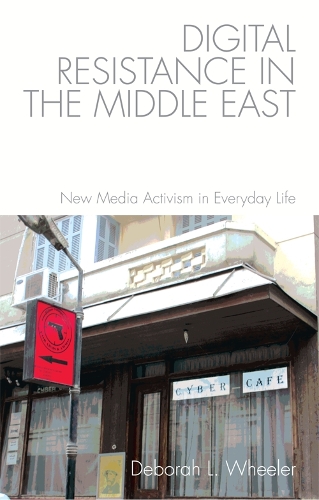
Digital Resistance in the Middle East: New Media Activism in Everyday Life
(Paperback)
Publishing Details
Digital Resistance in the Middle East: New Media Activism in Everyday Life
By (Author) Deborah L. Wheeler
Edinburgh University Press
Edinburgh University Press
4th October 2017
United Kingdom
Classifications
Tertiary Education
Non Fiction
302.230956
Physical Properties
Paperback
208
Width 156mm, Height 234mm
318g
Description
This book argues that Internet diffusion and use in the Middle East enables meaningful micro-changes in citizens' lives, even in states where no Arab Spring revolution occurred. Using ethnographic evidence and taking a comparative perspective, it presents a grass roots look at how new media use fits into the practice of everyday life. It explores why citizens use social media to digitally route around state and other forms of power at work in their lives. This increase in citizen civic engagement, supported by new media use, offers the possibility of a new order of things, from redefining patriarchal power relations at home, to reconfigurations of citizens' relationships with the state, broadly defined. The author argues that new media channels offer pathways to empowerment widely and cheaply in the Middle East.
Reviews
Wheeler's ethnographic approach to the study of the impact of the internet on Arab societies yields refreshing insights into how ordinary young people engage with new information technologies. This book makes for a welcome addition to the literature on the internet and politics in the Middle East, and shows the value of closely observing how real people's lives have been changed. -- Marc Lynch, George Washington University
Author Bio
Deborah L. Wheeler is Associate Professor of Political Science at the United States Naval Academy. She is author of Internet in the Middle East: Global Expectations and Local Imaginations in Kuwait (State University of New York Press, 2006).
